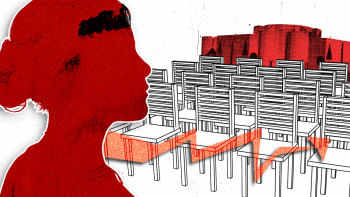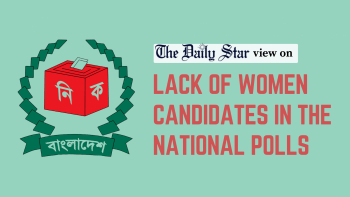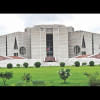Political tokenism will not empower women

The objective behind the move in 1972 to have reserved seats for women in parliament was to increase women's representation in the legislative body. Fifty-two years later, the number of these seats has increased to 50, but does that mean women in these seats are politically empowered? That there are more women's voices now and a greater role of women MPs in decision making? We all know the answer. The increase in reserved seats did not translate to an increase in women's political participation and empowerment.
The reason is quite obvious. These seats are used to increase the number of votes for each political party in parliament; the more seats a party has, the more it will benefit as women MPs in reserved seats are bound to show allegiance to the party that has nominated them. Ultimately, the ruling party (which has the majority of seats) benefits from this system.
As a report in this paper has shown, women MPs in these seats are not given the required resources, authority or opportunity to share responsibilities of a constituency. In fact, only the MPs directly elected have the authority over their constituency. Thus, while eligibility and political commitment are prerequisites for anyone to be an MP, being in a reserved seat with no real power serves precious little except to give some privileges to the MP in question. These days, even eligibility is not a criterion, rather it is whether the nominee is related to a politically influential person—that she is chosen. On many occasions, women MPs from reserved seats have expressed their frustration at having no real authority; sometimes they are treated dismissively within the party and outside.
In order for women's reserved seats to bring about meaningful participation, direct elections of women candidates in these seats would be the best bet. Women's rights activists have been calling for direct elections for decades, yet our politicians have lent a deaf ear to these demands. Having the head of the ruling party and a few directly elected women MPs in parliament is far from enough.
Political parties, therefore, must increase the nomination of women candidates in general seats. This means they must have women party members who are eligible and committed to the people so that they win fair and square. Direct elections in reserved seats, too, will ensure that qualified and politically astute women candidates are elected by the people. The government must build the capacity of women MPs by providing them with the authority over their respective constituencies. Only then can women prove their mettle as effective, assertive public representatives who can bring about positive changes for the people.


 For all latest news, follow The Daily Star's Google News channel.
For all latest news, follow The Daily Star's Google News channel. 










Comments